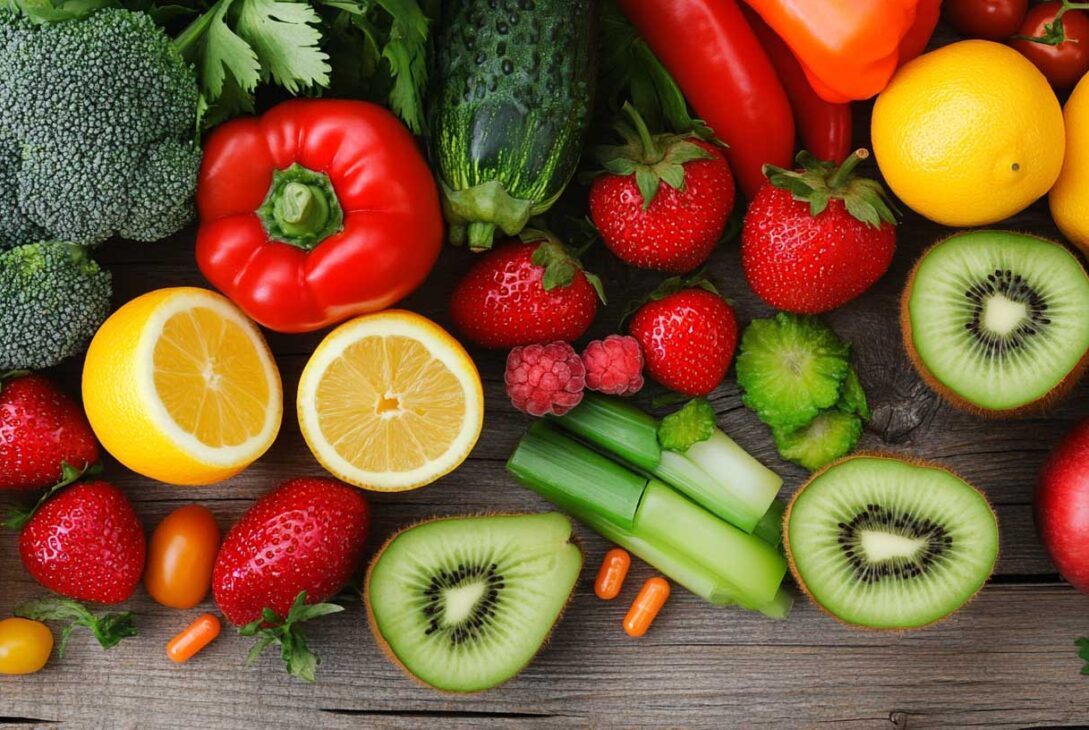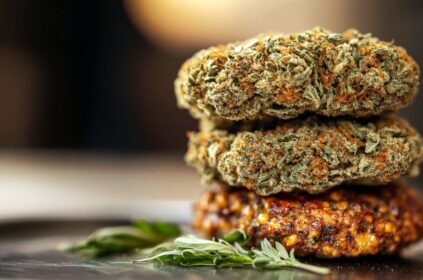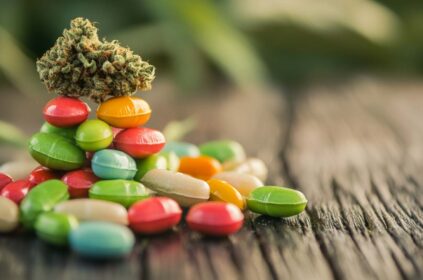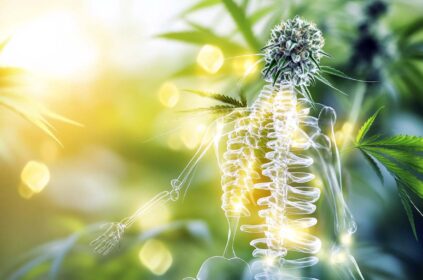Introduction
In the rapidly expanding universe of hemp-derived products, Delta 8 THC stands out as a fascinating compound with a range of therapeutic benefits. Among its many promising uses, appetite stimulation has captured considerable interest. This guide aims to shed light on how Delta 8 works, its potential benefits for those dealing with appetite-related issues, and practical advice for incorporating Delta 8 capsules into your wellness routine.
How Delta 8 THC Stimulates Appetite
Understanding how Delta 8 THC interacts with our bodies is essential for appreciating its appetite-enhancing effects. The key player in this interaction is the endocannabinoid system (ECS), an intricate network that helps maintain homeostasis and regulates various bodily functions, including appetite.
Activation of CB1 Receptors: Delta 8 THC binds to CB1 receptors, particularly in the brain’s hypothalamus, an area critical for hunger regulation. This binding can trigger the release of hormones associated with hunger, such as ghrelin and neuropeptide Y, thereby signaling the body to eat.
Enhanced Sense of Taste and Smell: Similar to its more famous cousin, Delta 9 THC, Delta 8 THC can enhance sensory experiences related to food. By amplifying taste and smell, meals become more tantalizing, encouraging individuals to eat when they may otherwise lack the desire.
Reward System Activation: Beyond merely stimulating hunger, Delta 8 THC can also engage the brain’s reward system. This elevation in pleasure associated with food consumption fosters not just the act of eating, but also a more positive experience around it.
Benefits of Delta 8 for Appetite Stimulation
For many individuals, particularly those facing health challenges, Delta 8 THC offers several notable benefits concerning appetite stimulation:
- Improved Nutritional Intake: Patients dealing with illnesses like cancer or anorexia may find Delta 8 beneficial. The increased appetite can lead to improved nutritional intake, crucial for recovery and maintaining health.
- Mild Psychoactive Profile: Many users appreciate Delta 8’s comparatively milder psychoactive effects. This aspect makes it an attractive alternative for those looking for appetite stimulation without the overwhelming high associated with Delta 9 THC.
- Therapeutic Applications: Research indicates that Delta 8 THC could provide therapeutic benefits for individuals suffering from reduced appetite due to chronic conditions or medical treatments. It’s a potential solution for promoting a healthier relationship with food.
Impact on Weight Management
While Delta 8 THC increases appetite, its effects on weight management can be surprisingly complex:
- Increased Food Intake but Weight Loss: Interesting studies involving mice have found that they eat more when administered Delta 8 THC but still lose weight. This curious phenomenon seems linked to improved energy metabolism and the regulation of norepinephrine, a neurotransmitter involved in energy expenditure.
- Metabolic Effects: Delta 8 THC might interact with CB1 receptors to potentially counteract overactivity in the ECS connected to obesity. This interaction could help maintain a healthy weight.
- Feeling of Fullness: Delta 8 THC doesn’t merely ramp up hunger; it can also help modulate feelings of fullness. This balance can lead to healthier eating patterns, as individuals can better manage their hunger signals.
Practical Tips for Using Delta 8 Capsules
For those interested in exploring Delta 8 THC capsules as an appetite stimulant, here are practical tips that can help maximize their benefits while minimizing any possible side effects:
- Start with a Lower Dose: When entering the world of Delta 8, it’s wise to begin with a low dose. This gradual approach lets you gauge how your body responds to the compound while minimizing the risk of an overwhelming appetite increase.
- Plan Your Meals: Meals and snacks should be ready to go when you take Delta 8 THC. Appetite stimulation usually kicks in between 30 minutes to two hours after consumption, so having healthy options available can encourage nutritional intake.
- Stay Hydrated: Keeping hydrated isn’t just essential for overall health—it can also help moderate the increased appetite from Delta 8 THC. Drinking water can help you feel fuller and reduce the chance of overeating.
- Consult a Healthcare Provider: It’s always a good idea to discuss starting new supplements with a healthcare professional, especially if you have existing health conditions or concerns. They can provide personalized advice and ensure safety.
Conclusion
Delta 8 THC capsules provide an intriguing avenue for individuals looking to stimulate their appetite and enhance overall nutritional intake. Understanding how Delta 8 interacts with the endocannabinoid system is crucial to appreciating its potential benefits and nuances. When approached thoughtfully, Delta 8 can help individuals restore their relationship with food and improve their health outcomes.
Actionable Takeaways
- Consult a Healthcare Provider: Always ensure that Delta 8 is safe for your unique health conditions before starting any new supplement.
- Choose High-Quality Products: Opt for reputable brands known for their purity and effectiveness to ensure safety and desired results.
- Monitor and Adjust Dosage: Begin with a lower dose and make adjustments based on your appetite response and any side effects.
- Combine with Healthy Habits: Pair Delta 8 usage with a balanced diet and regular exercise for optimal health and weight management.
Incorporating Delta 8 capsules into your wellness routine can offer benefits for appetite stimulation and nutritional health. By following best practices and remaining informed, users can navigate this exciting aspect of hemp products safely and effectively.





















